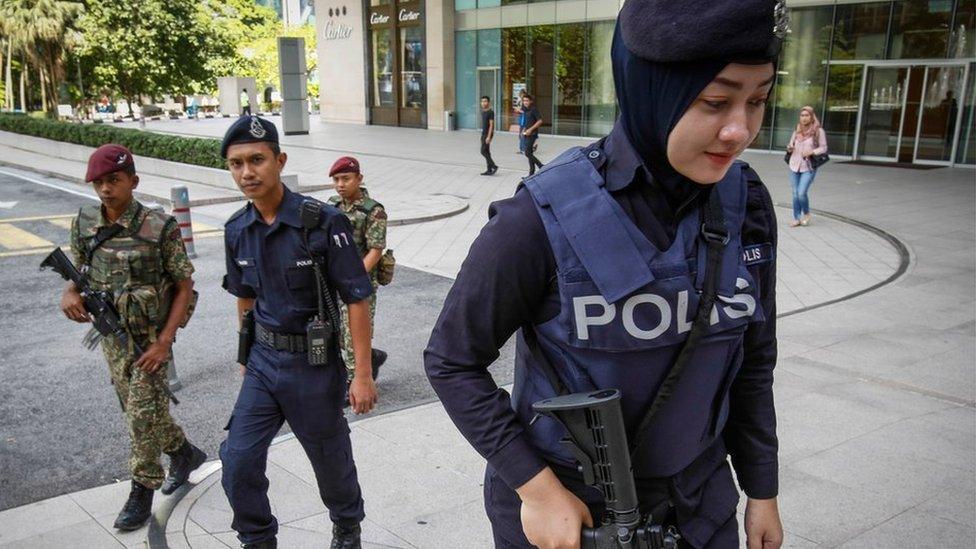A missing pastor and the disappearances chilling Malaysia
- Published
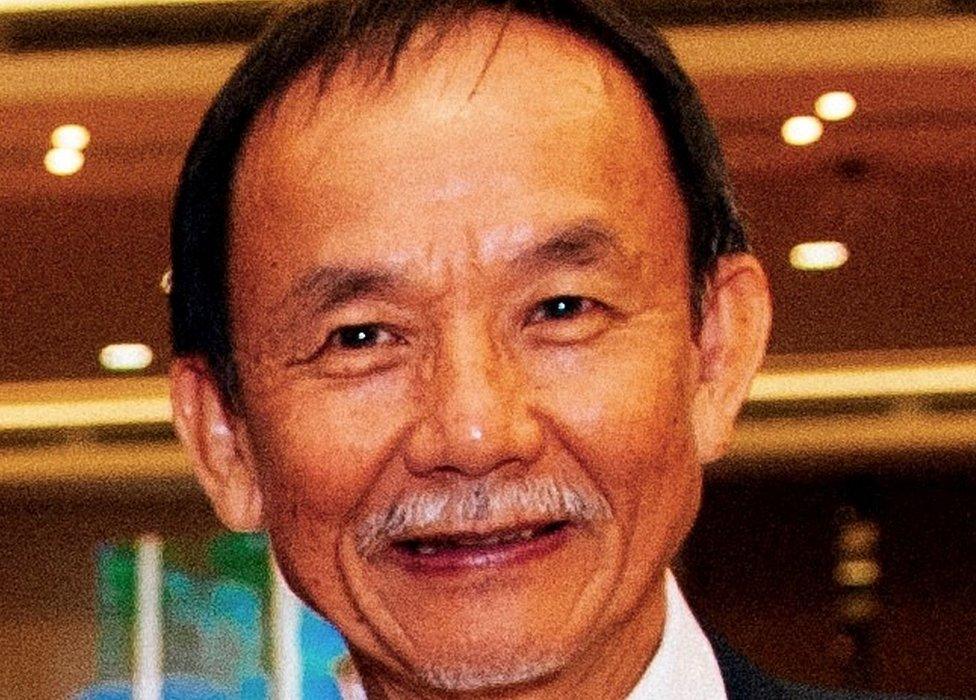
Mr Koh has been missing since 13 February
It all began with the case of the missing pastor.
On the morning of 13 February, Raymond Koh was exiting a highway in the leafy suburb of Kelana Jaya just outside of the Malaysian capital, Kuala Lumpur.
A widely circulated CCTV clip, external appears to show what happened next. A convoy of black SUVs and motorcycles is seen swooping down on his car and boxing it in by the side of the road.
Then, several men jump out and run to Mr Koh. There is a flurry of activity, and the convoy moves off - along with his car. It is allegedly the last time anyone sees him.
At first, it appeared to be an isolated case of a possible kidnapping.
But as the weeks wore on, more reports of missing Malaysians began to surface.
Many now believe these incidents are connected in what some call an "unprecedented" spate of disappearances, which has mystified the country and raised fears of religious vigilantism.
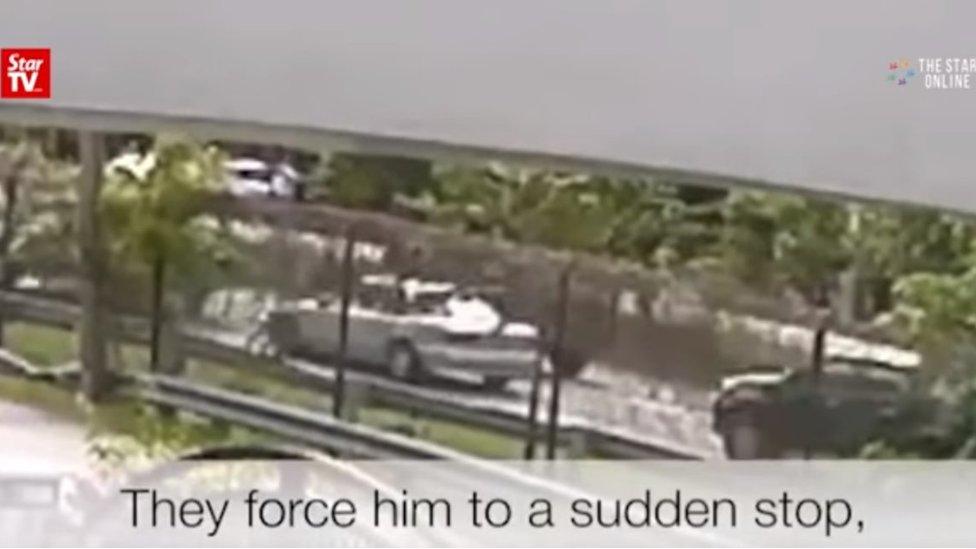
Malaysian media have published a clip purportedly showing black SUVs boxing in the white car Mr Koh was driving
Mr Koh's apparent abduction - an episode that takes place in just under a minute - took place in broad daylight and was witnessed by other drivers who later lodged police reports. Police are investigating the clip.
"The operation was very well planned. They knew who he was, where he was going, and probably had been tracking him," Mr Koh's son Jonathan tells the BBC.
"It was very professionally executed."
'Religious elements'
Abductions are not unheard of in Malaysia, but kidnappers usually make contact quickly with victims' families for a ransom.
Two months on, however, Mr Koh's family has not heard a single word from him or his alleged abductors.
They believe it is no ordinary kidnapping, and that "religious elements" took the pastor in an act of "vigilantism or terrorism".

You might also like:

Mr Koh runs a non-government organisation called Harapan Komuniti (Hope Community) in Kuala Lumpur, which helps the poor, single mothers, and drug addicts.
"He's passionate, he loves people, he loves God," says the younger Mr Koh.
In 2011, Raymond Koh's organisation was investigated by Malaysia's Islamic authorities.
His group was accused of attempting to convert Muslims when they hosted a party with Muslim attendees at a church. Apostasy is an offence in Muslim-majority Malaysia.
The allegations were later dropped. But he remained a target of online rumours and even received two bullets in the post shortly afterwards, his family claims.
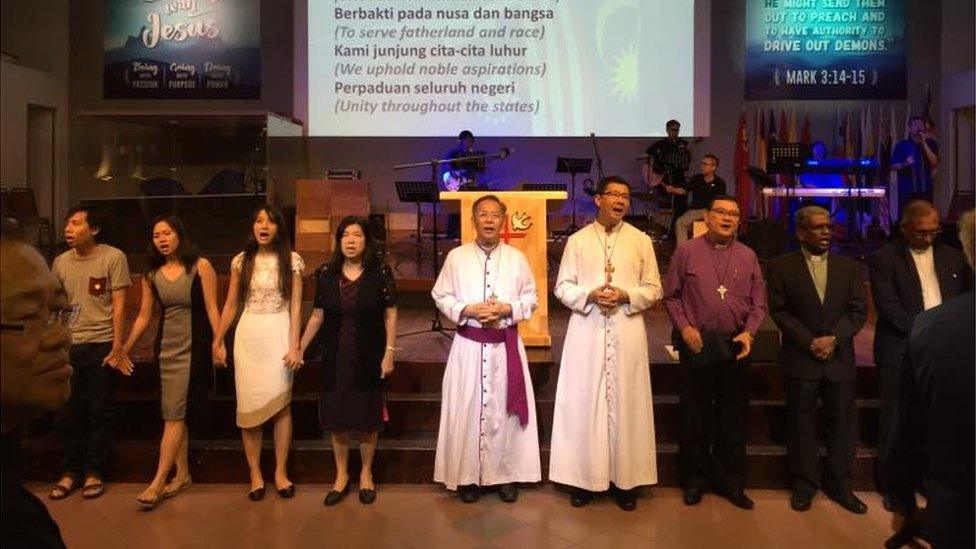
The heads of Malaysia's Methodist, Anglican and Roman Catholic churches attended a prayer service for Mr Koh last week
Such accusations have resurfaced with Mr Koh's disappearance.
Last week, it emerged that several people had lodged a police report against Mr Koh, alleging that he tried to convert Muslim youths to Christianity in January.
"He would never ask anyone to leave Islam," says his son, Jonathan Koh.
"His alleged proselytism is not an excuse for kidnapping. If he did anything wrong, he should have the right as any citizen to trial."
Malaysian police have given few updates, other than they were pursuing three angles: that Mr Koh had "personal issues", extremist groups were involved, or that he was kidnapped for ransom.
They did not respond to the BBC's request for comment.
Links to vanishings
Amid the media blitz over Mr Koh's disappearance and the video clip, stories about other missing Malaysians began to emerge.
All of these cases were recent disappearances and many remain unexplained.

Missing in Malaysia

In 2014 Mr Chong spoke to the BBC about his friend, MH370 pilot Zaharie Ahmad Shah
Peter Chong: Social activist and former city councillor, external who disappeared last weekend near Kuala Lumpur. Police have since said he was seen crossing the border into Thailand.
Joshua and Ruth Hilmy: Pastor and his wife who were last seen near Kuala Lumpur in November.
Amri Che Mat: Muslim social activist allegedly snatched from his car in November, in the northern state of Perlis. His wife has denied allegations, external that he was spreading Shia Islam, which is banned by religious authorities.

There is no evidence these are in any way linked but in the absence of concrete information, many have come up with their own theories - including that the authorities may have had a hand in all this.
The "unprecedented mysterious" vanishings has led to "public perception and speculation... of forced disappearances", says the Malaysian Bar,, external using a term which usually refers to state-sponsored abductions.
"It is shocking and outrageous that a growing number of Malaysians could inexplicably disappear and not be found for days, weeks and months."
The police has not taken kindly to such rumours. Last month, the country's top police officer told citizens to "please shut up", external, and on Wednesday he told reporters, external there "was no connection".
Others have taken up the Kohs' theory and believe religious vigilante groups may be responsible.
Malaysian Muslims practise a moderate version of Sunni Islam, but in recent years the country has seen the rise of vocal Islamist groups.
Authorities have arrested dozens of suspected extremists, and last year the country saw its first attack by the so-called Islamic State.
Against this backdrop, the disappearances have unnerved many. The Malaysian Bar also says they raised "alarming doubts" about the country's security.
Mr Koh's disappearance in particular has sent a "worrying signal" to Christians, says Hermen Shastri, general secretary of the Council of Churches of Malaysia.
"It's a question on our minds, and some churches are worried it may be a trend... where those involved in activities related to the poor [are targeted by] vigilante groups," he tells the BBC.
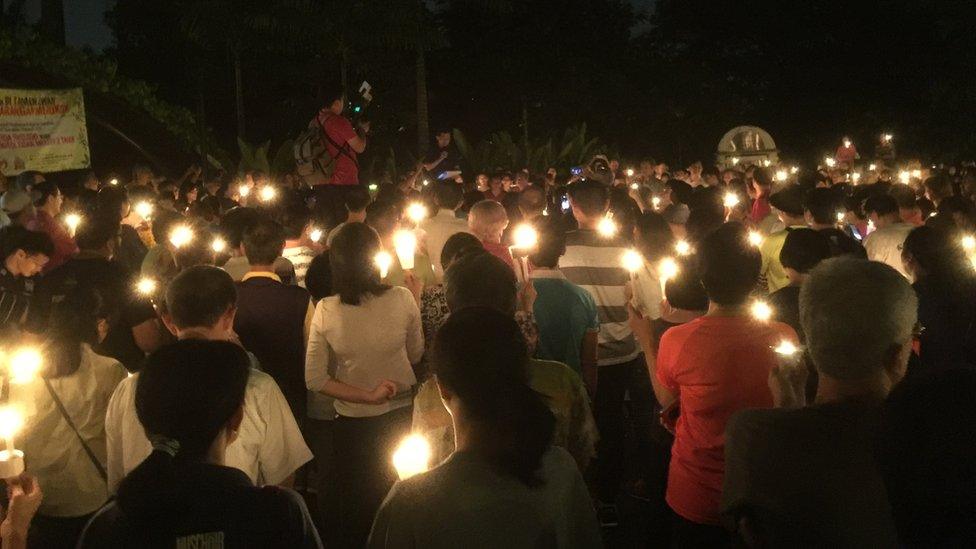
Vigils calling for Mr Koh's return have been held across Malaysia in recent weeks
Meanwhile, the families of the missing Malaysians can only hope and wait.
The Kohs have offered a reward for information, made repeated public appeals, and held vigils. Last week, senior Christian leaders and various heads of churches held a prayer service for Raymond Koh.
"We have been very stressed, it's been very frustrating," says Jonathan Koh.
"But we are working on leads. I still think he's alive."
- Published27 January 2014
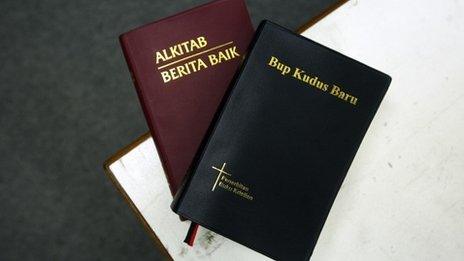
- Published5 July 2016
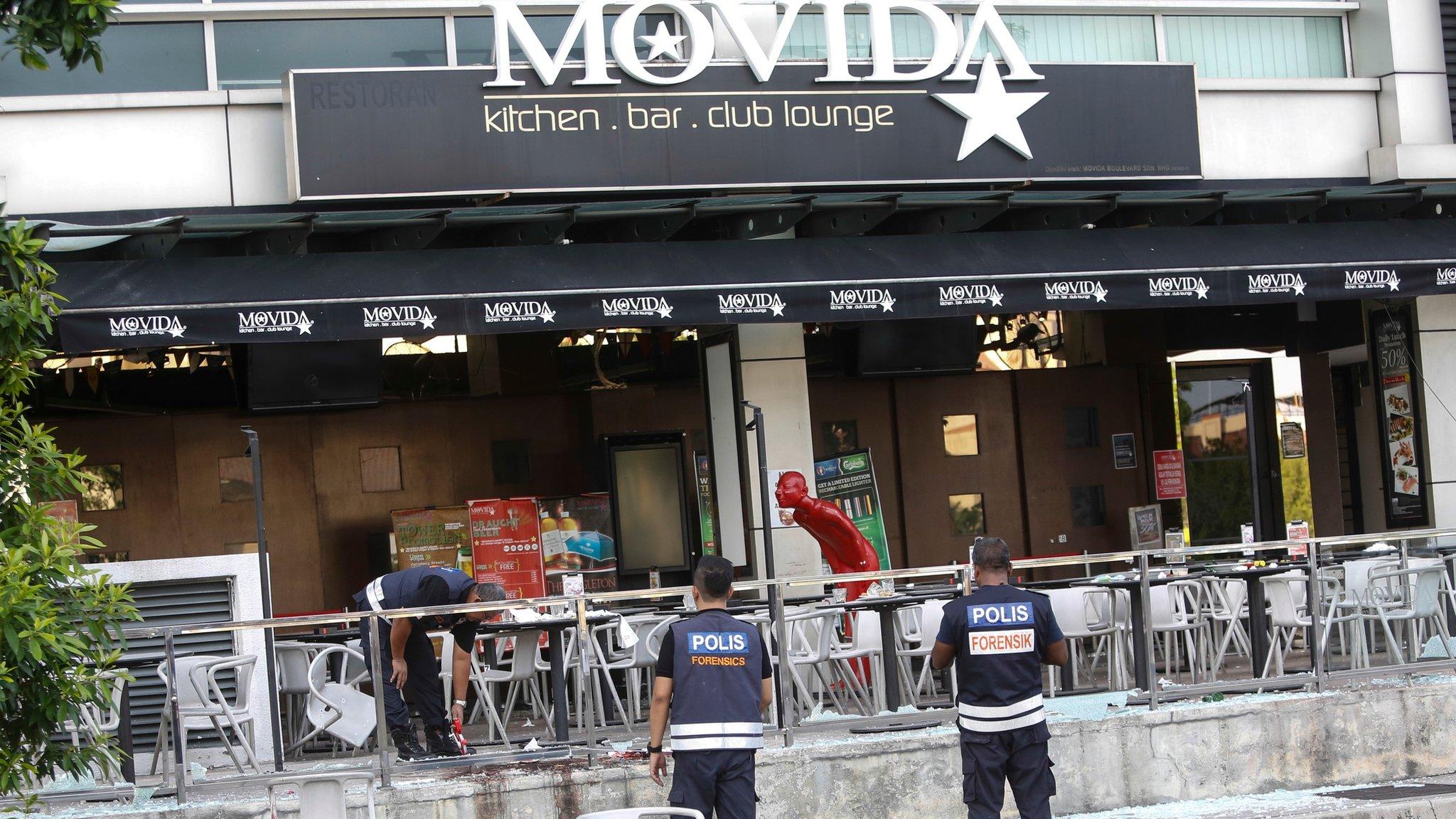
- Published25 March 2016
